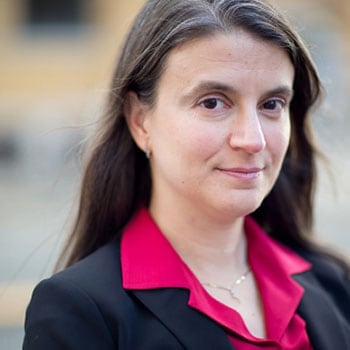Advisory Board Section
Academia
Primary Website
Biography
Additional Title
- Breene M. Kerr Professor of Nuclear Science and Engineering
Professor of Materials Science and Engineering, Massachusetts Institute of Technology
Professor Bilge Yildiz’s research centers on the science and technology of materials development for energy conversion applications in harsh environments. The scientific insights derived from her research impact the design of novel surface chemistries for efficient and durable solid oxide fuel/electrolysis cells, and for corrosion-resistant films in a wide range of extreme environments as in nuclear energy generation and oil exploration. Her research has made significant contributions in advancing molecular-level understanding of the kinetics of oxygen reduction and oxidation on ionic solid surfaces. Specifically, Prof. Yildiz studies the effects of temperature, stress and reactive fluids on the surface reactivity and degradation by combining theoretical and experimental analyses of electronic structure, defect mobility and composition, and provide design guidelines for high-performance and durable materials.
The key findings in much of Prof. Yildiz’s work were obtained through the development of in situ surface science techniques in conjunction with first-principles calculations and novel atomistic simulations. The Yildiz laboratory develops and implements new scanning tunneling microscopy and spectroscopy capabilities in harsh in situ conditions of temperature, reactive gasses and mechanical stresses; a first-of-its-kind capability. Her computational specialization includes development of new multiscale models to overcome the timescale limitation of traditional atomistic methods while coupling to the same atomistic length scales attainable in her experiments.
